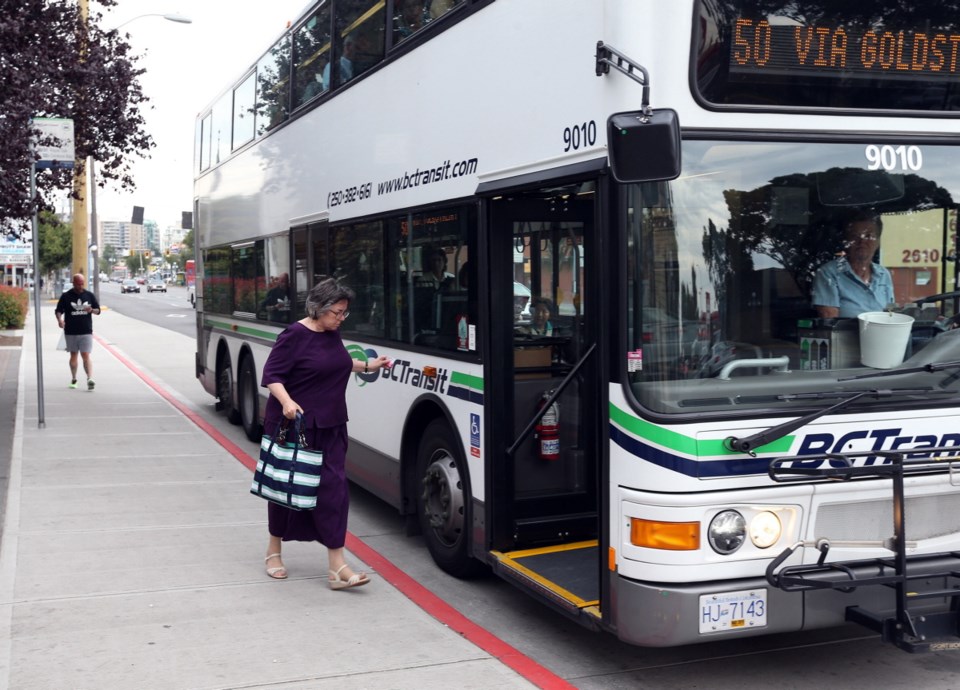B.C. Transit has posted an invitation for vendors to provide quotes on automated voice technology, nearly a year after a controversial decision to ask Greater Victoria bus drivers to call out every stop to accommodate blind passengers.
The union representing transit operators and the Victoria-based Canadian Federation of the Blind have said they would prefer an automated system. Many drivers are refusing to call out stops, saying it’s dangerous and distracting, although WorkSafe B.C. has conducted investigations that found calling out bus stops is not an “undue hazard.”
B.C. Transit now says it favours a “technological solution” that could be used on about 270 Victoria-area buses, and in B.C. Transit systems elsewhere in the province.
After the May 5 closing date for bids, “B.C. Transit will review proposals as quickly as possible, and determine if there is a suitable technology, at a reasonable cost, to move forward,” said communications manager John Barry.
Unifor Local 333 president Ben Williams said the call for vendors sounds like a positive step, but questioned why B.C. Transit does not simply use the technology proven elsewhere, including Vancouver. He added that the invitation to vendors is not a commitment to fund an automated system.
B.C. Transit did not put a price limit on its call for vendors, but previous estimates ranged from $1.2 million to $5 million for Greater Victoria’s fleet.
Meanwhile, the union has secured a B.C. Supreme Court hearing on Tuesday to argue for a say in the decision to have drivers call out stops. It will seek a second human-rights hearing into a discrimination complaint launched by the Canadian Federation of the Blind. The federation had said B.C. Transit was discriminating against blind people by not providing stop information that they could use.
B.C. Transit has refused to grant the union intervener status without going to court, spending taxpayer dollars to fight the union’s stance, Williams said.
The Canadian Federation of the Blind’s initial complaint was withdrawn when B.C. Transit decided on the call-out policy, which came into effect on April 22, 2014. Williams said the policy was declared without any input from B.C. Transit’s 550 drivers in Greater Victoria.
There has been a widespread refusal by drivers to obey the directive, on the grounds that they have the right to refuse unsafe work. Fifteen drivers have been disciplined by B.C. Transit and the union has filed complaints to WorkSafe B.C.
WorkSafe B.C. last investigated drivers’ safety concerns in January, said spokesman Scott McCloy. “We encouraged the workers and employer to work together on solutions to this issue.”
Williams said more than 200 operators have invoked their right to refuse unsafe work, but B.C. Transit is stalling on the in-house process to deal with their complaints. Driver complaints do not result in an automatic report to WorkSafe, Williams said.
Barry said he could not comment on personnel matters.



